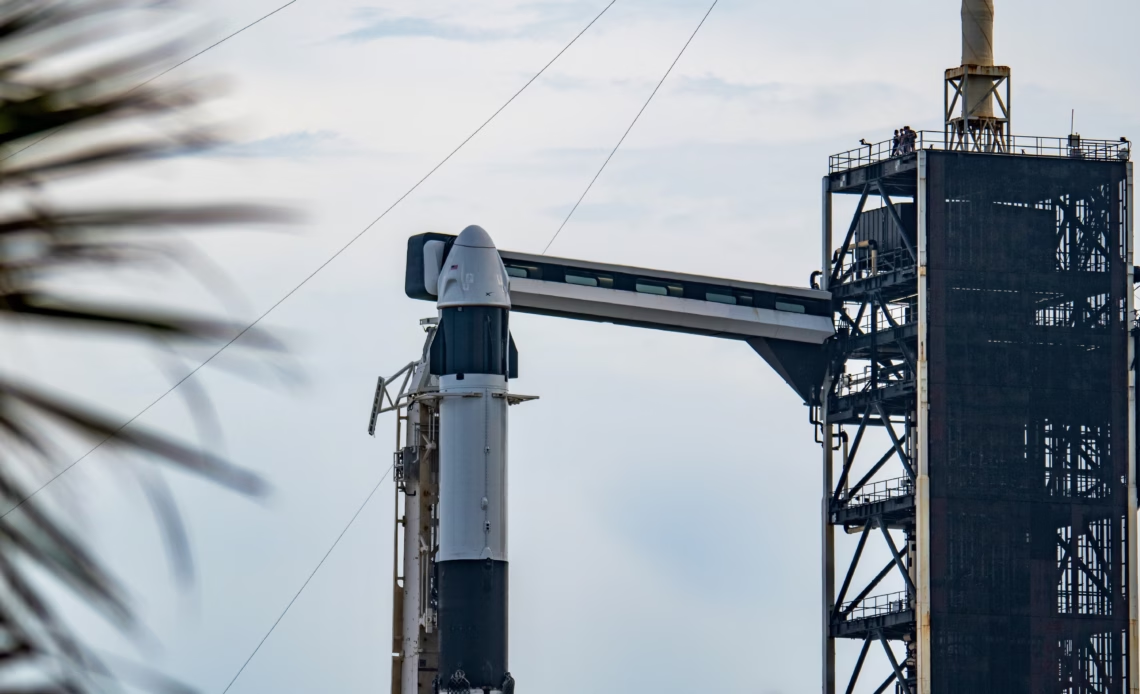Axiom Space’s next astronaut launch is back on the board, at least for now.
That mission, Ax-4, is Axiom’s fourth crewed flight to the International Space Station (ISS). It was slated to launch atop a SpaceX Falcon 9 rocket on June 11, but a liquid oxygen leak discovered in the booster delayed things by a day. That was followed by the detection of another leak, but this time at Ax-4’s orbital destination.
Cosmonauts aboard the ISS recently spotted a “new pressure signature” in Zvezda, the Russian service module at the aftmost end of the space station. Zvezda has been leaky for a while, but this change in pressure prompted another delay in the Ax-4 launch out of an abundance of caution. That delay, which NASA and Axiom announced on June 12, was indefinite; no new target date was identified.
Zvezda first sprang a leak in 2019, and the module has been managed periodically with pressure checks and maintained with whatever is the space equivalent of Flex Tape. Now, it seems the appropriate repairs have been effectuated, and NASA’s worry about the potential risk to incoming crew has subsided enough for the agency and Axiom to announce a new tentative launch date — this Thursday (June 19).
“Following the most-recent repair, pressure in the transfer tunnel has been stable. Previously, pressure in this area would have dropped. This could indicate the small leaks have been sealed,” NASA wrote in a June 14 update.
However, the space agency isn’t taking the initial results as definitive.
“Teams are also considering the stable pressure could be the result of a small amount of air flowing into the transfer tunnel across the hatch seal from the main part of space station,” officials wrote in the update. “By changing pressure in the transfer tunnel and monitoring over time, teams are evaluating the condition of the transfer tunnel and the hatch seal between the space station and the back of Zvezda.”
The fixes to the leaky Falcon 9 first stage, on the other hand, are more definitive. That booster, designated B1094, is one of the newer ones in SpaceX’s fleet, with only one previous launch under its belt. The rocket stage supported the Starlink 12-10 mission at the end of April, and apparently showed signs of a leak during that flight as well.
SpaceX’s vice president of build and flight reliability, Bill Gerstenmaier, told reporters during a June 9 press conference that…
Click Here to Read the Full Original Article at Latest from Space.com…

